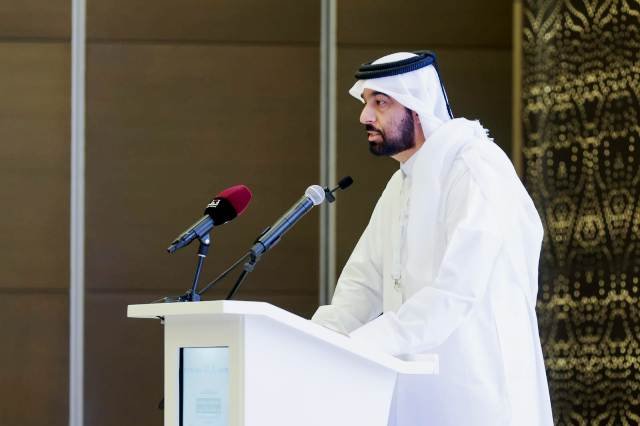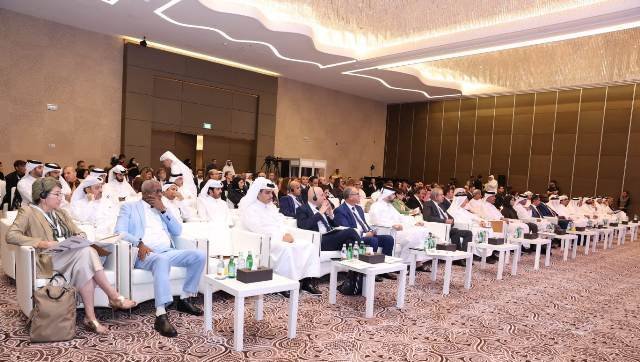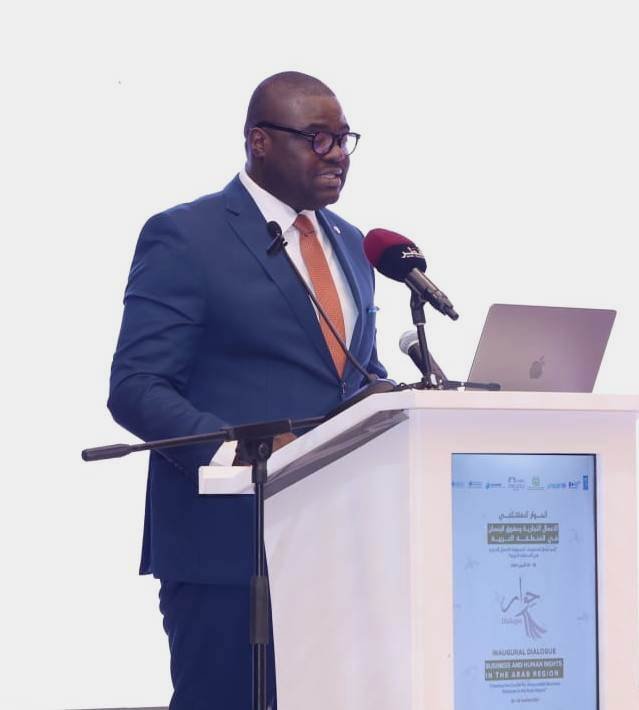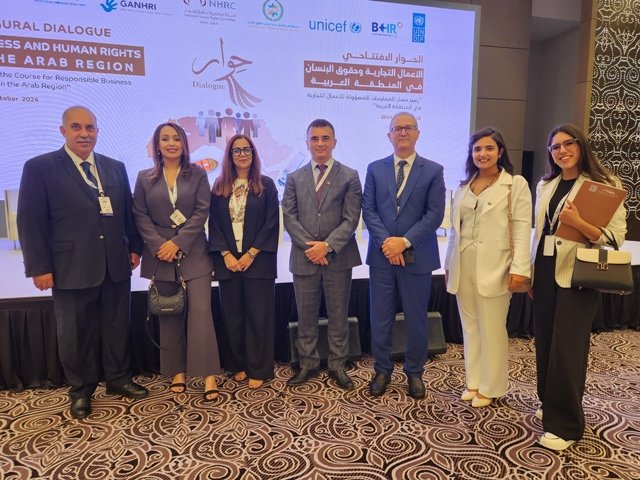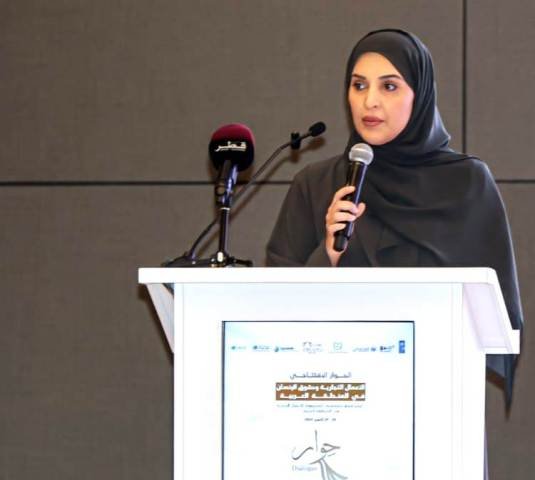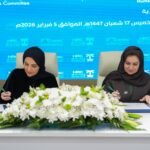Doha, Qatar, 28 Oct. 2024
Mrs. Maryam Al-Attiyah, Chairperson of National Human Rights Committee of Qatar and President of Global Alliance of National Human Rights Institutions (GANHRI), highlighted the region's vast economic opportunities and the urgent need to address business impacts on human rights, especially concerning vulnerable populations.
Addressing in her opening welcoming speech on the first day of two-day symposium ''Inaugural Dialogue on Business and Human Rights in the Arab Region', Al-Attiyah emphasized the UN Guiding Principles on Business and Human Rights, which establish frameworks for state responsibility in protecting rights, corporate accountability, and victim redress.
The two-day symposium is convened by National Human Rights Committee of Qatar in cooperation with United Nations Development Program (UNDP), and other international human rights bodies, emphasizes 'Charting the Course for Responsible Business Practices in the Arab States Region'. Around 200 delegates are participating including representatives from national human rights institutions, international experts, and members of academia addressing the need for responsible business practices in a rapidly evolving economic environment marked by significant human rights challenges, particularly for vulnerable groups.
Mrs. Al-Attiyah noted that national human rights institutions (NHRIs), equipped with unique mandates, play critical roles in connecting governments, businesses, civil society, and affected communities. She underscored that NHRIs foster accountability and advocate for laws and policies aligned with international human rights standards. Their role also includes raising awareness, empowering communities, and ensuring that companies adopt practices that respect human rights. This collaboration among NHRIs, regional networks, and UN partners is vital in embedding human rights into business operations.
Sultan Al-Jamali, Secretary-General of the Arab Network of National Human Rights Institutions, remarked that the dialogue underscores a collective path for businesses to align with universal human rights principles. He emphasized the Network's work with the Office of the High Commissioner for Human Rights to bolster NHRIs' capacity in economic, social, and cultural rights monitoring.
Al-Jamali reiterated that enforcing regulations that uphold human rights can mitigate crisis impacts and foster equitable social development, particularly in Arab states where various socio-economic challenges persist. He advocated for creating national frameworks to ensure businesses contribute positively to communities, especially marginalized groups.
Dr. Mohammed Al-Kuwari, Vice Chair of Qatar’s National Human Rights Committee of Qatar, pointed out the regional challenges, emphasizing that certain business practices still overlook marginalized populations. He proposed establishing a permanent network to unify stakeholders—businesses, civil society, and governments to strengthen collaboration, align efforts, and develop national plans to address current and future human rights challenges.
From a global perspective, Prof. Damilola Sunday Olawuyi of the UN Working Group on Business and Human Rights urged for increased focus on economic diversification, clean technologies, and access to sustainable solutions in the region. He expressed optimism that the dialogue would yield actionable solutions to advance the UN Guiding Principles regionally, especially for vulnerable groups.
Biplov Chowdhury, Technical Representative at UNDP in Qatar, noted the dual impacts of business on human rights—positive in areas like decent working conditions, yet harmful in cases of worker exploitation and transparency gaps. Chowdhury emphasized the need for enhanced awareness in the Arab region to drive sustainable and inclusive business practices.
Engineer Ali Al-Darazi, Chairperson of Bahrain’s National Institution for Human Rights, praised the dialogue for fostering a culture of human rights, urging companies to respect workers’ rights and protect citizens’ interests. The conference, he said, provides a significant platform for raising awareness about corporate accountability and countering allegations from developed nations about human rights violations in the region.
This dialogue symbolizes a step forward in aligning Arab business practices with human rights principles, emphasizing the need for openness, innovation, and cooperation. As Mrs. Maryam bint Abdullah Al-Attiyah stated, the outcomes of this dialogue will influence not only Arab countries but also contribute to shaping a global approach to integrating human rights in business, ultimately promoting a future where all individuals can lead dignified and safe lives.

